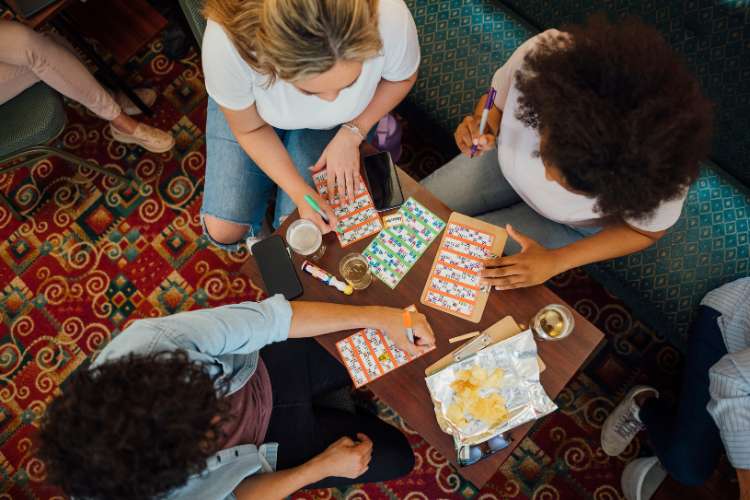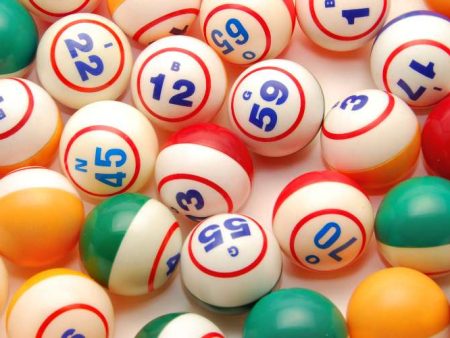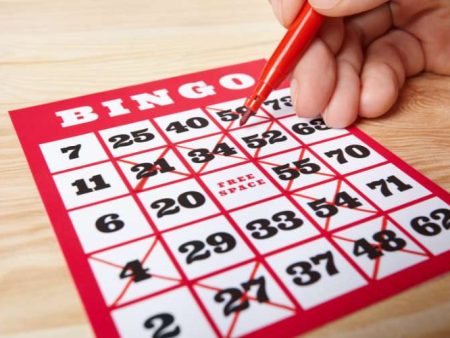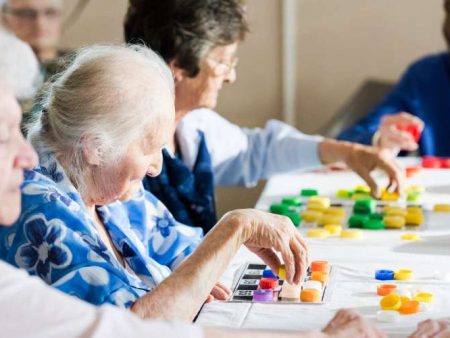
What's on this page
Bingo is one of the most beloved games in the UK, offering excitement, social interaction, and the chance to win big. But have you ever wondered why it’s so addictive? The combination of social connections, the thrill of anticipation, and the psychological rewards makes Bingo a game that players often find hard to resist. In this article, I’ll explore the psychology behind Bingo’s addictive nature, diving into the reasons it keeps players coming back, and how you can enjoy it responsibly.
The History and Appeal of Bingo
Bingo has a long and rich history. Originally called “beano,” the game dates back to the 16th century, but it gained significant popularity in the UK in the 1960s. Over the years, its appeal has only grown, and now, Bingo is enjoyed both in traditional halls and online.
The social benefits of Bingo have always been a huge draw. It’s a game that has always encouraged community participation. In bingo halls, players gather around, interact, and cheer each other on. With the advent of online Bingo, that community aspect hasn’t disappeared. If anything, it’s been amplified with chat rooms, social features, and the ability to play alongside people from around the world.
The simplicity of Bingo is another reason for its enduring popularity. You don’t need to be an expert to enjoy the game. Whether you’re new to Bingo or have been playing for years, the rules remain straightforward. This ease of access, combined with the chance to win large prizes, makes Bingo a perfect game for both casual players and those looking for a more exciting challenge.
The Role of Social Interaction in Bingo
One of the most important aspects of Bingo that makes it so addictive is its social nature. Whether you’re playing in person at a bingo hall or engaging with others on a bingo app, the ability to chat with fellow players creates a sense of community. These interactions are not only fun but also psychologically rewarding.
In online Bingo, players are often able to join chat rooms where they can share their wins, discuss their favorite games, and interact with others. The sense of connection and camaraderie makes the experience much more enjoyable. The group dynamics of Bingo make players feel like they are part of something larger than just a game of chance.
Studies have shown that socializing while playing games can trigger the release of oxytocin, the “bonding hormone.” This can create feelings of trust and comfort, making players feel more relaxed and engaged. These social benefits of Bingo contribute significantly to its addictive nature, as players may return time and time again to enjoy not just the game, but the sense of belonging it provides.
The Dopamine Effect: How Winning and Anticipation Drive Addiction
Bingo, like many other games, taps into the brain’s reward system, particularly through the release of dopamine. Dopamine is a neurotransmitter associated with pleasure and reinforcement. When you win a game or even experience a near-miss, your brain releases dopamine, creating a feeling of excitement and joy.
Anticipation also plays a huge role in making Bingo addictive. The build-up to a win, especially when you’re just one number away from completing a row, can trigger high levels of dopamine. This sense of anticipation is so powerful that it compels many players to keep going, hoping for that next win.
What makes Bingo even more addictive is the intermittent reinforcement involved. Unlike other games where you may know the outcome after every round, Bingo often offers wins that come unpredictably. Sometimes you might win on the first game, other times you may not win at all. This unpredictable nature of rewards—coupled with the anticipation of hitting a jackpot—keeps players coming back for more.
The Impact of Game Design on Addiction
Game design plays a pivotal role in making Bingo so addictive. Online Bingo platforms use elements that are specifically tailored to keep players engaged for longer periods. Sound effects, colorful visuals, and flashing lights all play a role in heightening excitement. These elements tap into your brain’s reward system, keeping you hooked on the game.
Features like autoplay and quick games are also part of Bingo’s addictive nature. The ability to set your game on autopilot means that you don’t have to manually call the numbers, allowing you to relax and focus on the excitement of the game. Meanwhile, fast-paced games keep the action constant and give you instant feedback, ensuring you don’t lose interest.
Bonuses, such as free tickets or extra points, further encourage players to stay engaged. These rewards make you feel like you’re constantly on the verge of winning something, even if it’s not the jackpot. The game’s reward-based design can cause players to play longer than intended, seeking the next payout or bonus.
The Social and Emotional Triggers of Bingo Addiction
Bingo’s addictive nature isn’t only about the thrill of the game itself. There are also significant emotional triggers that contribute to its appeal. Winning a game brings an immediate sense of satisfaction, pride, and excitement. This positive emotional feedback is powerful, and it creates a cycle that many players find hard to break. The emotion attached to winning is further enhanced by the social aspect, where you can share your success with others.
On the flip side, losing can also trigger emotional responses. The desire to win again, or to “chase” your losses, can keep players coming back even when they’ve had an unlucky streak. This cycle of emotional highs and lows makes Bingo not only exciting but, for some, deeply addictive.
Many players also turn to Bingo as a way to escape stress, boredom, or other negative emotions. The distraction of playing a game, combined with the social environment, can provide an emotional reprieve, which makes Bingo a go-to activity when things aren’t going well.
Psychological Theories Behind Gambling Addiction and Bingo
Several psychological theories help explain why Bingo is so addictive. One of the most relevant is behaviorism, particularly the idea of operant conditioning. This theory suggests that behaviors are reinforced by rewards. In Bingo, players receive immediate feedback—whether it’s a win, a near-miss, or a small reward—which reinforces their desire to play again.
Another theory that applies to Bingo is cognitive psychology, specifically the concept of the illusion of control. Players often believe they have some influence over the outcome, even though Bingo is a game of chance. This illusion leads people to keep playing, thinking that they can increase their odds of winning, even though the game is entirely random.
Loss-chasing is another psychological element at play. After experiencing a loss, players might feel compelled to keep playing, believing that another round will lead to a win. This behavior is commonly seen in gambling addiction, and Bingo is no exception.
Signs of Bingo Addiction and Responsible Gaming
While Bingo can be a fun and social experience, it’s essential to recognize the signs of Bingo addiction. If you find yourself playing longer than intended, spending more money than you can afford, or prioritizing Bingo over other important activities, it may be time to take a step back.
Here are a few signs to watch for:
- Playing Bingo more than you planned
- Feeling the need to play even when you’re losing
- Spending more money than you can afford
- Playing Bingo as a way to escape negative emotions
- Struggling to stop playing, even when you know it’s affecting other areas of your life
If you recognize these signs in yourself, it’s important to take action. Setting limits, taking regular breaks, and being mindful of your playing habits can help prevent excessive gambling. There are also support resources available for players in the UK who may need help managing their gambling behavior.
The Future of Bingo and Its Psychological Impact
With advancements in technology, Bingo is likely to become even more engaging in the future. Virtual reality (VR) and augmented reality (AR) could soon bring a new level of immersion to the game, allowing players to interact with each other in fully realized digital Bingo halls. These technologies could enhance the social benefits of Bingo, creating more vibrant and dynamic communities.
As technology continues to evolve, so too will the way Bingo is played. Online platforms will likely continue to incorporate AI, dynamic bonuses, and gamification to maintain player engagement. However, as Bingo becomes more immersive and interactive, it’s essential for developers and regulatory bodies to ensure that these changes don’t exacerbate the game’s addictive qualities.
Conclusion
Bingo’s addictive nature lies in a combination of social interaction, emotional highs, and rewarding gameplay. Its ability to trigger both positive and negative emotions, coupled with the thrill of anticipation and occasional wins, makes it a game that’s hard to put down. But while Bingo is fun, it’s crucial to play responsibly. Recognizing the psychological triggers behind its addictive qualities can help you enjoy the game without falling into unhealthy patterns. Whether you’re using Bingo apps effectively or choosing to play Bingo for free online, always remember to play within your limits and seek support if needed. Happy playing, and stay responsible!





